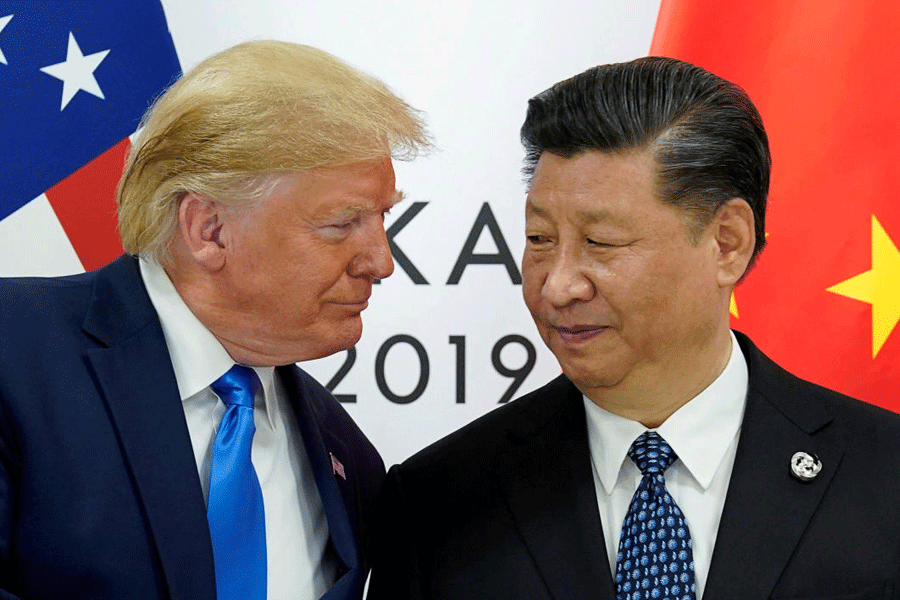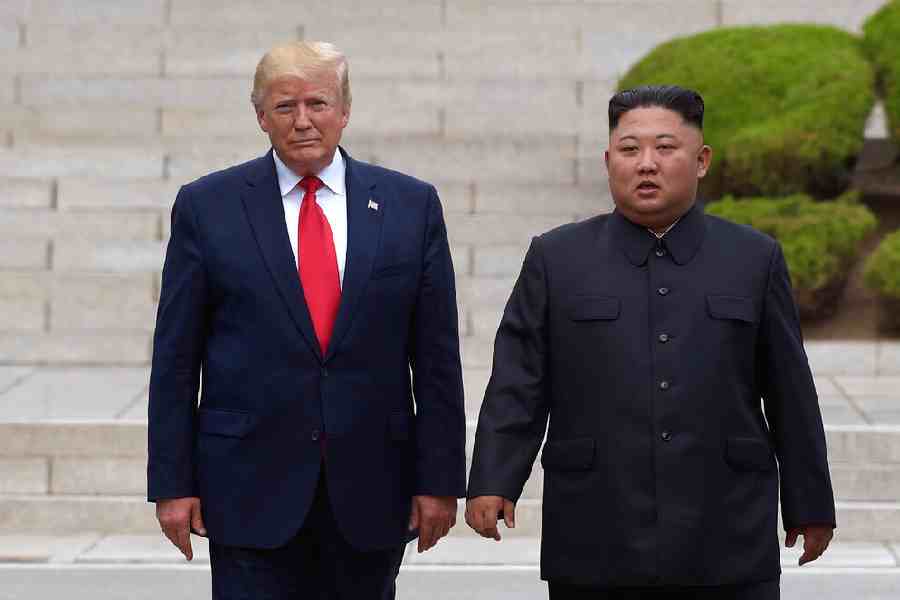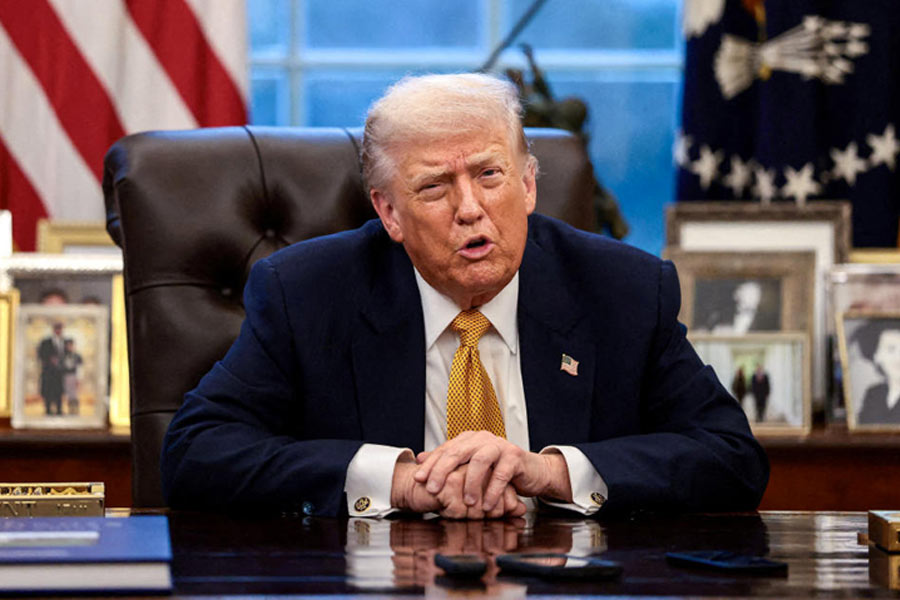Donald Trump and Xi Jinping will hold their first face-to-face talks since 2019 in Busan on Thursday, with discussions set to centre on semiconductor curbs, rare-earth exports and the war in Ukraine, while sidestepping the fraught question of Taiwan.
"The two heads of state will have in-depth communications on strategic and long-term issues," a foreign ministry spokesperson said on Wednesday, without making a reference to the trade deal the leaders of the world's two largest economies are expected to agree on while in the port city of Busan.
"We are willing to make joint efforts with the United States to promote the positive results of this meeting and provide new guidance and impetus for the stable development of China-US relations," Guo Jiakun added.
'Things will work out very well with Xi tomorrow. The meeting will be three to four hours,” the US President Donald Trump said on Wednesday.
Earlier on Tuesday, Trump, speaking aboard Air Force One en route to Gyeongju, South Korea, called the upcoming meeting “fantastic” and “big,” saying he was “very optimistic” about its outcome.
“I think we’re going to have a great meeting with President Xi of China, and a lot of problems are going to be solved,” he told reporters.
The talks, taking place on the sidelines of the Asia-Pacific Economic Cooperation (APEC) CEO summit, mark the first in-person encounter between Trump and Xi since the G20 summit in Osaka, Japan, in 2019.
It is also the first since Trump’s return to the White House earlier this year.
The meeting comes at a time of renewed friction over trade tariffs, technology export controls, and China’s restrictions on rare earth minerals.
Trump and Xi are expected to discuss measures to de-escalate these disputes, which have unsettled global markets.
Both sides are under pressure to reach a trade truce before a November 10 deadline, after which tariffs could surge once again.
As of late September, the average Chinese tariff on US exports stood at 32.6 per cent, while US tariffs on Chinese exports averaged 57.6 per cent, according to the Peterson Institute for International Economics, reported The Guardian.
In recent weeks, Washington has tightened export restrictions on advanced semiconductor technology, including Nvidia’s state-of-the-art Blackwell artificial intelligence chip, while Beijing has increased its export controls on rare earths.
On Wednesday, Trump said he plans to discuss Nvidia’s chip sales with Xi, calling the product the “super-duper chip.”
The US argues that the restrictions are necessary to prevent the Chinese military from enhancing its capabilities.
As per The Guardian’s report, in preliminary talks held in Kuala Lumpur over the weekend, Beijing appeared to agree to defer for a year over the new rare earth export controls, likely in exchange for Washington freezing the new chip export controls.
Trump has sought to reduce American dependence on Chinese rare earths, recently signing an agreement with Japanese Prime Minister Sanae Takaichi to secure joint mining and processing of critical minerals.
China, for its part, is diversifying its economic partnerships. On Tuesday, it upgraded its free trade agreement with the Association of Southeast Asian Nations (ASEAN), its largest trading partner.
Last year, China-ASEAN trade reached $771 billion, surpassing the $659 billion recorded in US-China trade.
The trade negotiations have been buoyed by progress made in preliminary talks in Malaysia last weekend, where officials reportedly agreed on a framework for cooperation.
This has raised hopes that a broader understanding could be reached when Trump and Xi sit down in Busan.
The US President has also indicated that the meeting may avoid discussion on Taiwan. “I don’t know that we’ll even speak about Taiwan. I’m not sure. He may want to ask about it. There’s not that much to ask about. Taiwan is Taiwan,” Trump said.
Beijing has reiterated that it would “never” rule out using military force to annex Taiwan, with state media this week detailing plans for governance of the island under Chinese control.
But Trump confirmed he would raise the issue of Russia’s invasion of Ukraine during his talks with Xi.
Ukrainian President Volodymyr Zelensky had urged Trump to use the meeting to press Xi to scale back Chinese support for Russia amid the ongoing war in Ukraine.
“If President Trump manages to hold talks, make decisions, and reach an understanding with China to reduce imports of Russian energy, I think it will help all of us,” Zelensky said on Tuesday.
Earlier this month, Trump imposed sanctions on two of Russia’s largest oil companies and urged China and India to curb their purchases of Russian oil, which Washington and Kyiv say bankroll Moscow’s war.
Trump and Xi are also expected to finalise a deal concerning TikTok and discuss curbing fentanyl exports.
On Wednesday, Trump was received in South Korea with an elaborate welcome ceremony, including the presentation of a replica gold crown and the Grand Order of Mugunghwa, the nation’s highest decoration.
His visit to South Korea follows earlier stops in Malaysia and Japan, where he held separate trade talks with regional leaders.
With inputs from agencies











